Review by Tim Robins
WARNING: SPOILERS
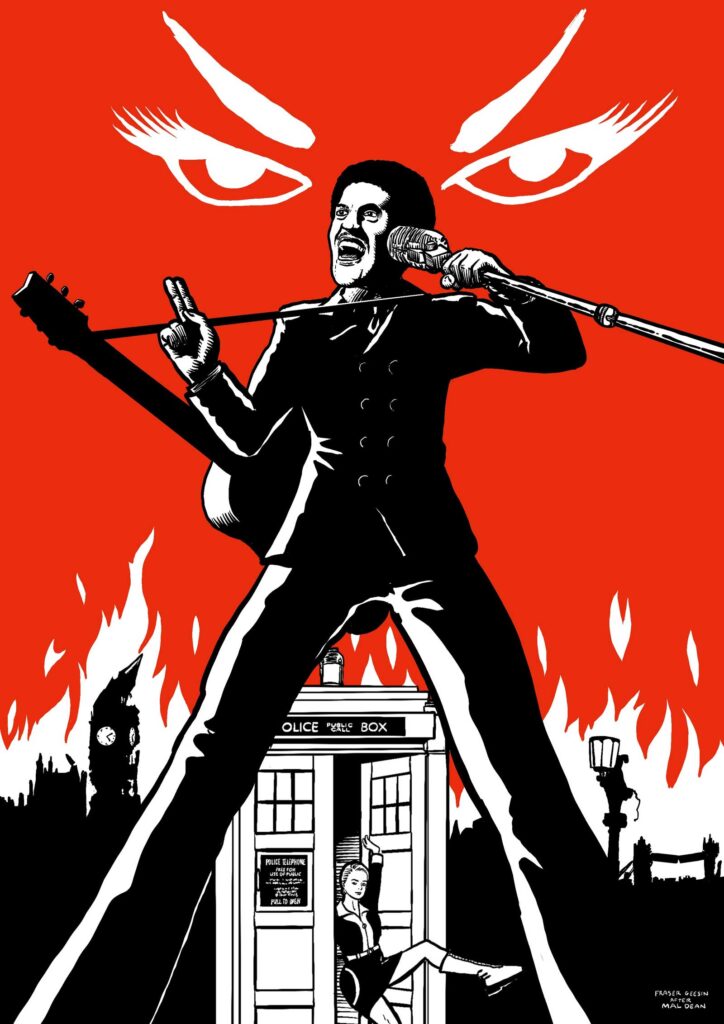
In “Space Babies”, Ruby learns the Doctor’s amazing secrets when he takes her to a Baby Farm in the future that’s being run by babies, but threatened by a bogeyman…
In “The Devil’s Chord”, When the Doctor and Ruby meet The Beatles, they discover that the all-powerful Maestro is changing history…
Be aware, this review investigates many real-world issues evoked by the stories featured.
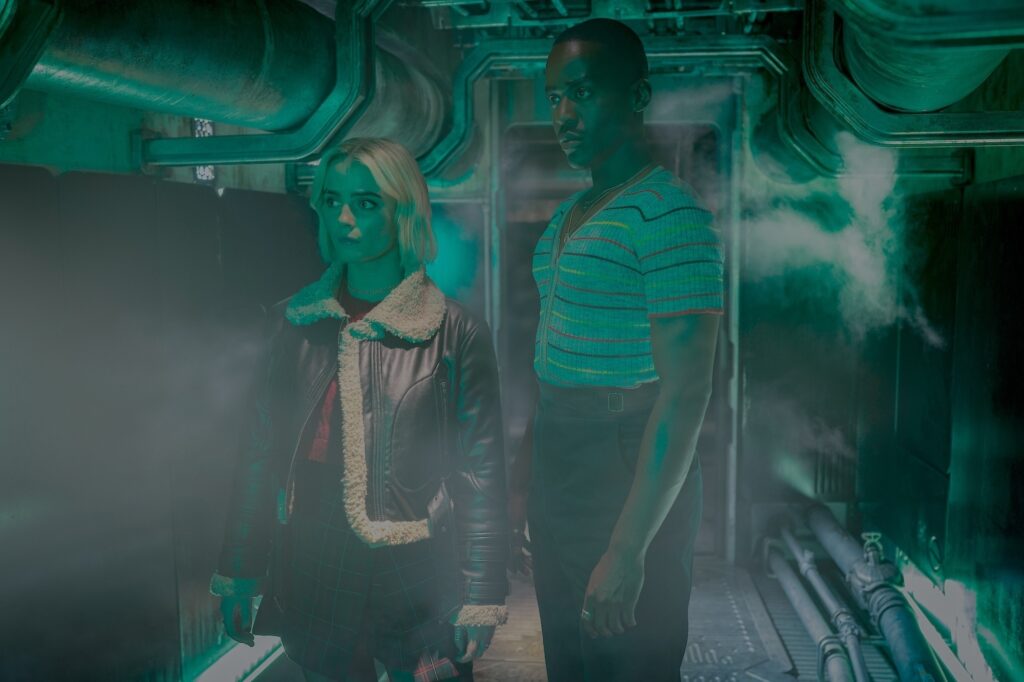
Well, I called it with my review of last year’s Christmas Special. Doctor Who has decisively regenerated into a form of light entertainment, or as I now think of the series – “The Double Deckers in Outer Space” (Wow! That dates me).
The BBC dropped two episodes – “Space Babies” and “The Devil’s Chord” on iPlayer at midnight 10th May, then screened them later that day to segue into The Eurovision Song Contest. It was as if the shows were vying to see which was to be crowned the campest example of the “let’s put on a show” tope since White Christmas(1954).
“Space Babies” was the most utterly ridiculous Doctor Who story that I have had the pleasure of watching. The premise was totally high concept – babies in space. Yes, space babies! – as The Doctor kept exclaiming as if the idea of space babies was hilarious even to himself and he has met such absurdities as Chumblies (robotic jelly moulds) , a megalomaniac cactus (humanoid bulls with ill-fitting heads) and The Woolf Weeds (malevolent, trained tumbleweeds).
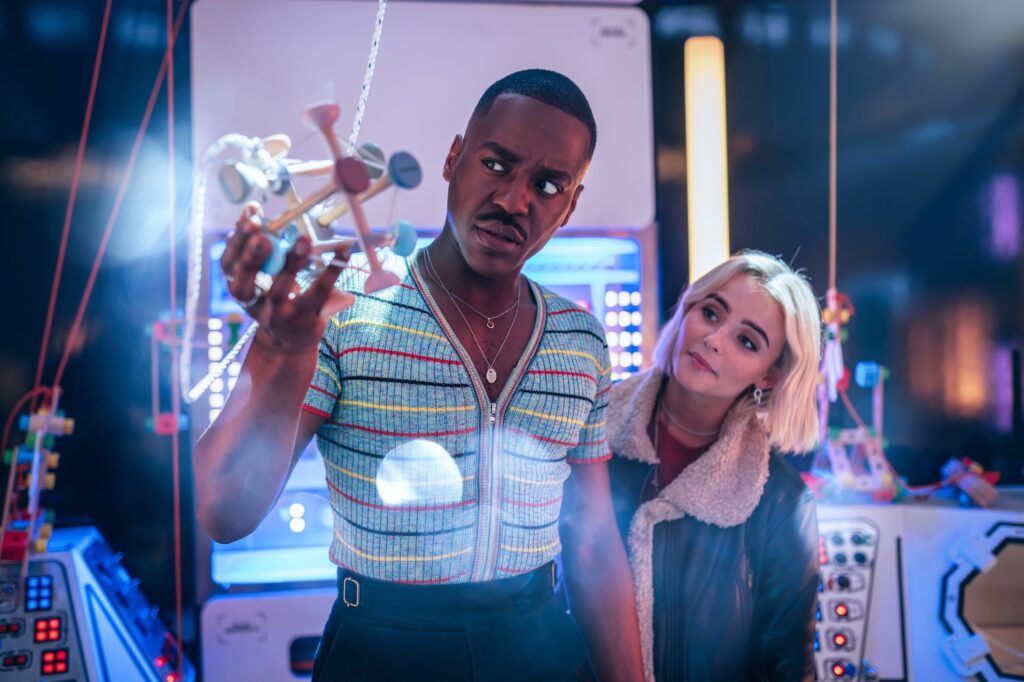
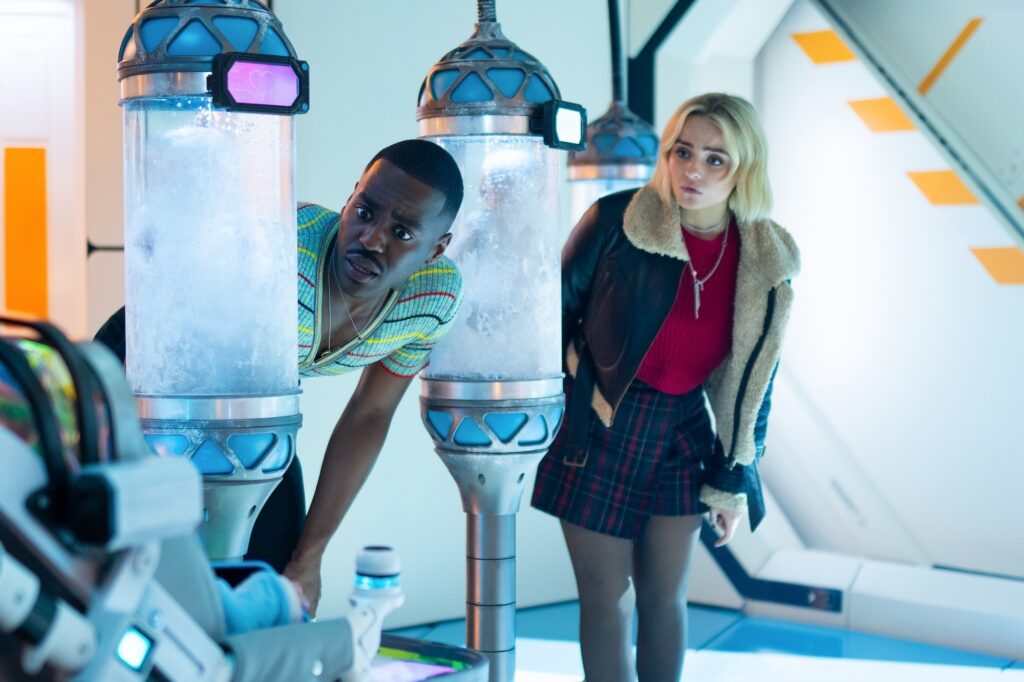
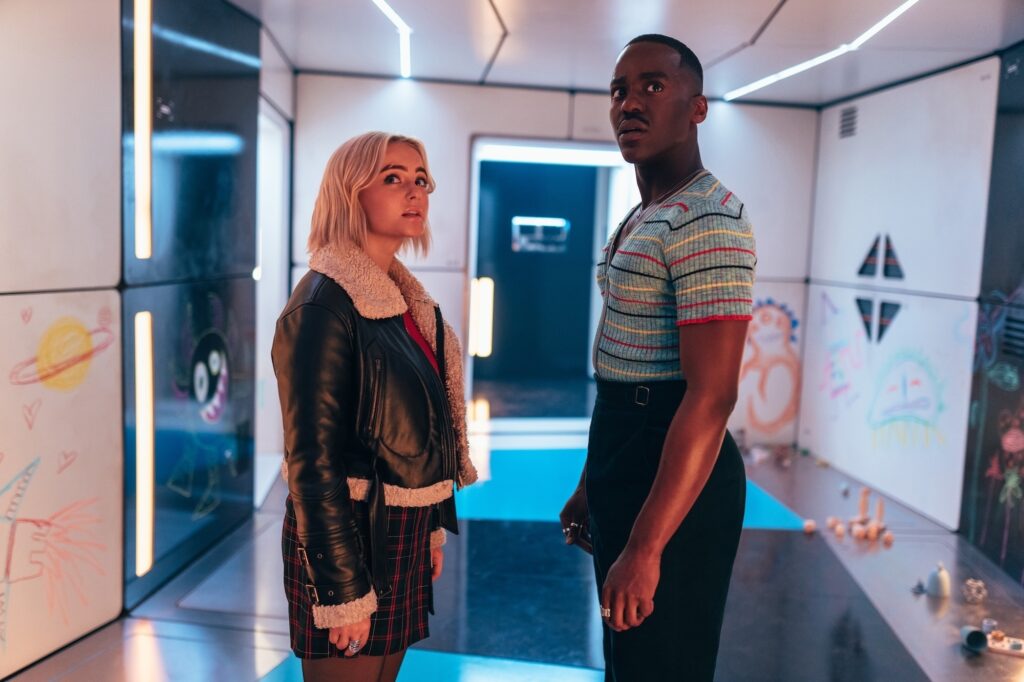
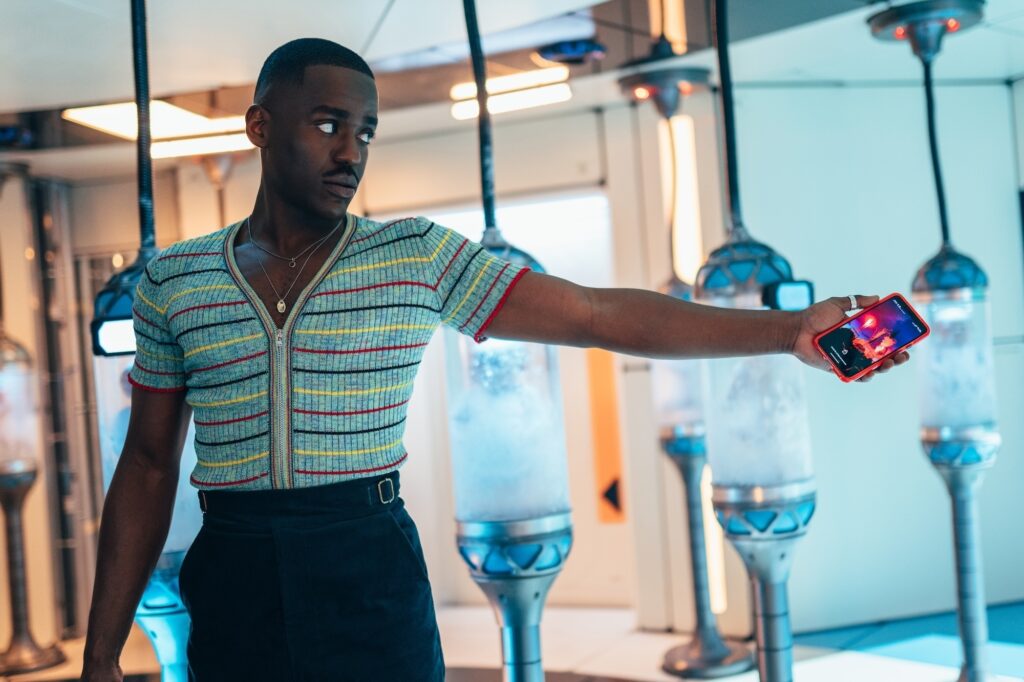
Somewhere in space is a space station crewed almost entirely by babies in motorised wheelchairs. The babies operate the ship with the aid of wooden, Meccano-like “Waldo arms”. All is not well in their world. Six years after being abandoned by their parents, supplies of nappies and everything else are running low.
To make matters worse, below decks stalks an actual Bogey-man, so horrible even The Doctor wants to run and hide. Then there’s the stink of soiled nappies. By the end, I was laughing so much I almost had an accident myself. The site of angst-ridden babies, bravely facing their worst fears was pant-wettingly funny, but also heart tugging.
At one point The Doctor gets to reassure “Captain Poppy”, and the audience, that ‘nobody grows up wrong’. The Doctor tells us that we are who we are “and that’s magnificent!”. I wonder if he’s shared the same joie de vivre if it came to the likes of Liz Truss, or Donald Trump? But as an utopian sentiment, it certainly was one. And The Doctor intends to live by example, “I am absolutely lovely!”
The script had a pop at American evangelical “pro-lifers” by pointing out the horrors of a system that legally compels children to be born but then doesn’t want to support them after that. Then, The Doctor turned to the lot of migrants, cast adrift and fated to turn up on someone else’s shore.
Showrunner Russell T. Davies is in good form here, using political points to give the series heart rather than an explicit political message. The script isn’t point scoring, so much as making waspishly ironic asides. Doctor Who is at its best when it turns cultural concerns into grand guignol.
Of course sometimes, Doctor Who can become a load of old tropes. In one of the many self-referential moments in the new season, Ruby realises they are trapped in an all too familiar ‘monster’ in the cellar trope’ (heck, I even wrote one of those, titled “Slimmer”, with Mike Collins, for a Doctor Who strip, for The Incredible Hulk Presents, drawn by Geoff Senior).
When it comes to Ruby’s back story, I am not hugely impressed with the woman companion with a mysterious past schtick. The “Woman as enigma” trope is well past its sell-by date.
What made Rose Tyler (Billie Piper) so immediately appealing back in the day (2005) was that she was a known quantity, an everyday character that required no explanation and relatable because of that, that is until she became a god. I also welcomed the quotidian quality of Chris Chibnall’s characters, if not the way they were written.
Part of the enigma is that Ruby Sunday seems connected to everything happening, as the Doctor explained. Yes, Doctor women are indeed ‘connected’ to babies, it’s not just your, our, or RTD’ imaginations. Fortunately, Ncuti Gatwa and Millie Gibson work well together. On screen, the pair seemed so excited to be in Doctor Who, I thought they might actually explode.
It’s good to see that, even in the most manic moments, Davies still carves out space and time for The Doctor and his companion to have heart to hearts even though these can, as here, come across as mere info dumping.
I loved “Space Babies” from the start. The faces of the babies were well realised, wearing the kind of troubled frown when confronted with something new. And the newborn born Doctor Who was much like one of the babies. I wanted to embrace the show, hold it in my arms and reassure it that everything was going to be alright. But, at time of writing, “Space Babies” has, according to Radio Times, “close to its lowest overnight viewership ever,” so maybe it won’t.
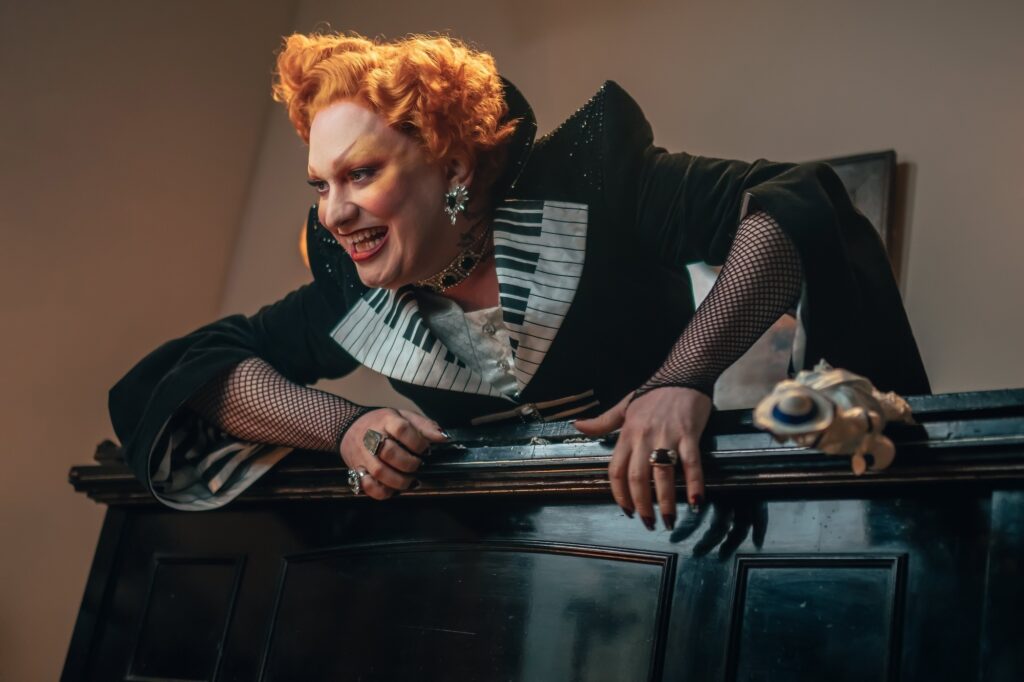
The ratings for “The Devil’s Chord” were even worse than those for “Space Babies”. Maybe the audience watching on iPlayer just fell asleep.
Like its predecessor, “The Devil’s Chord” had continuity references aplenty. Ruby is told that the Doctor used to hang out in a junkyard in Shoreditch and not only had parents but even a granddaughter, who may or may not have been destroyed in a genocidal time wave. I’m sorry, but I’ve forgotten when or where this happened, if it has happened at all.
In quieter moments, The Doctor and Ruby swap notes on the fact that they are both adopted. Here Davies is doubling down on the controversial ‘Timeless Child’ retcon in which the Time Lords discovered The Doctor as a baby and adopted his ability to regenerate for themselves.
I realise the BBC are uniting past and present Doctor Who to create a marketable ‘Whoniverse’, but I think Disney, in particular, is going to have to stop fretting about the oddness of Doctor Who. The scripts can’t continually hold the American audience’s hand. Doctor Who is eccentrically British, and it harms the show to explain that eccentricity away.
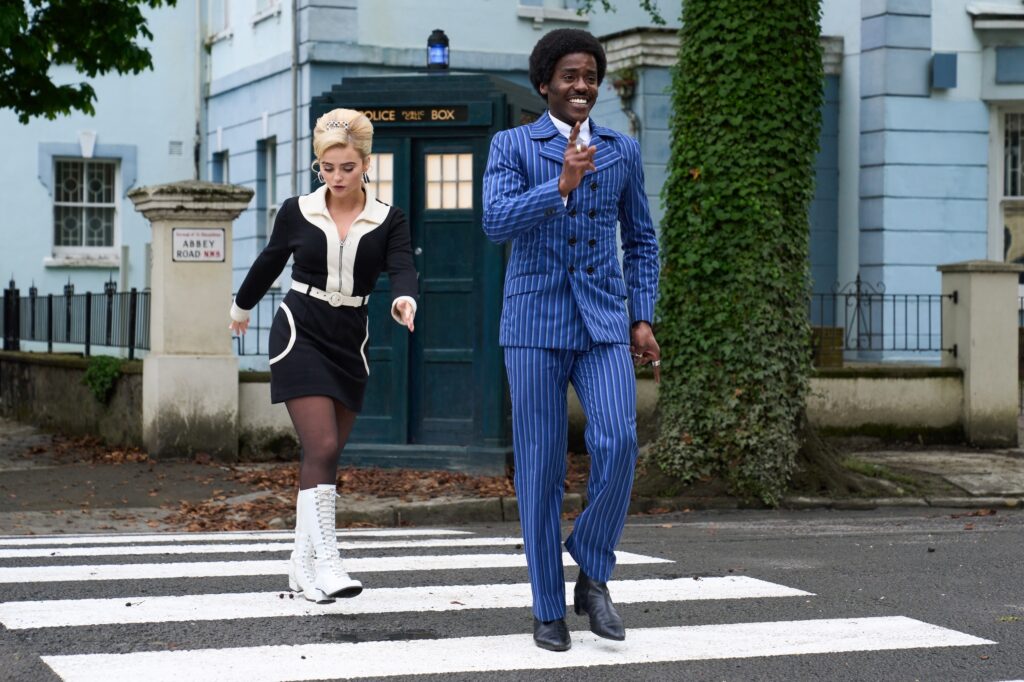
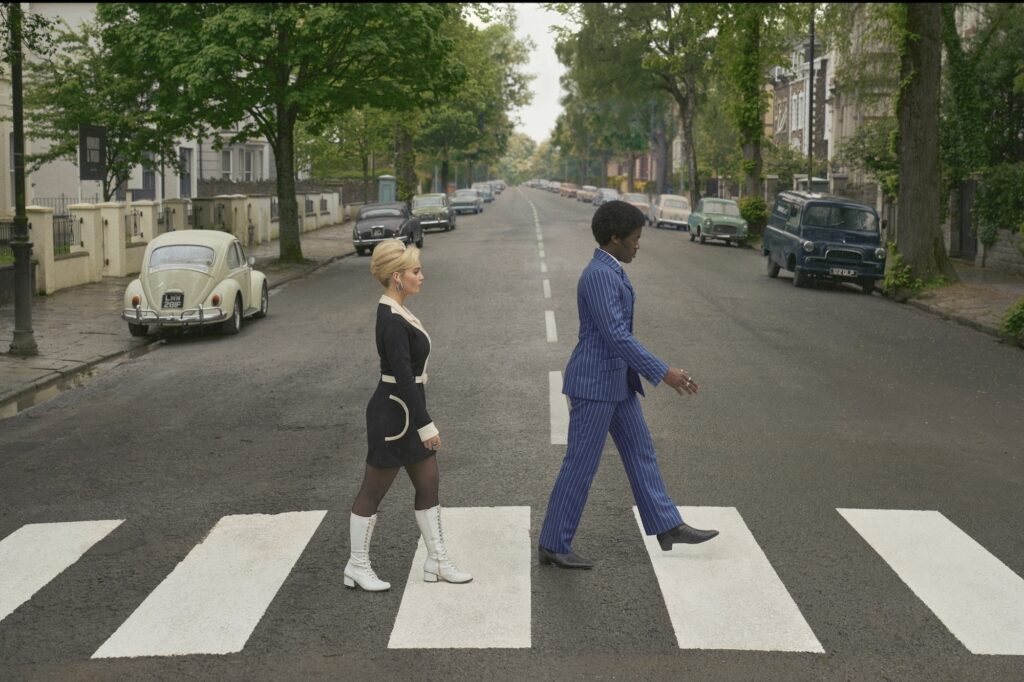
That said, Doctor Who has often followed in the wake of programming trends and even specific shows. In 1963, it was the BBC’s answer to the popularity of ITV’s adventure series, including The Adventures of Sir Lancelot and The Adventures of Robin Hood. Returning Doctor Who to the small screen, Russell T. Davies was open about his influences, notably Buffy the Vampire Slayer. This time out, he has positioned the show in relation to the superhero genre. Doctor Who may be considered Marvel Comics Universe adjacent, with Ncuti Gatwa drawing comparisons between his Doctor and Captain Britain.
Davies has positioned some of this season’s adversaries as cosmic supervillains. “The Devil’s Chord”, the second episode of the season, introduced us to a force of nature called Maestro, a role played with great gusto by Jinkx Monsoon, the drag persona of Hera Hoffer. Monsoon’s character was one of those there ‘thems’ – another member of the ‘Pantheon’ of extra temporal creatures unleashed by The Doctor in Doctor Who’s sixtieth anniversary story, “The Wild Blue Yonder”.
The Doctor and Ruby encounter Maestro when they whisk back to 1963 to watch The Beatles record their first album. The Doctor is excited because, he claims, companions never ask to see this kind of thing (although The Doctor gave Ian, Barbara and Viki a glimpse of The Beatles through his Time Space Visualiser in “The Executioners”, episode one of The Chase. And that was on the companions’ request if I remember correctly).
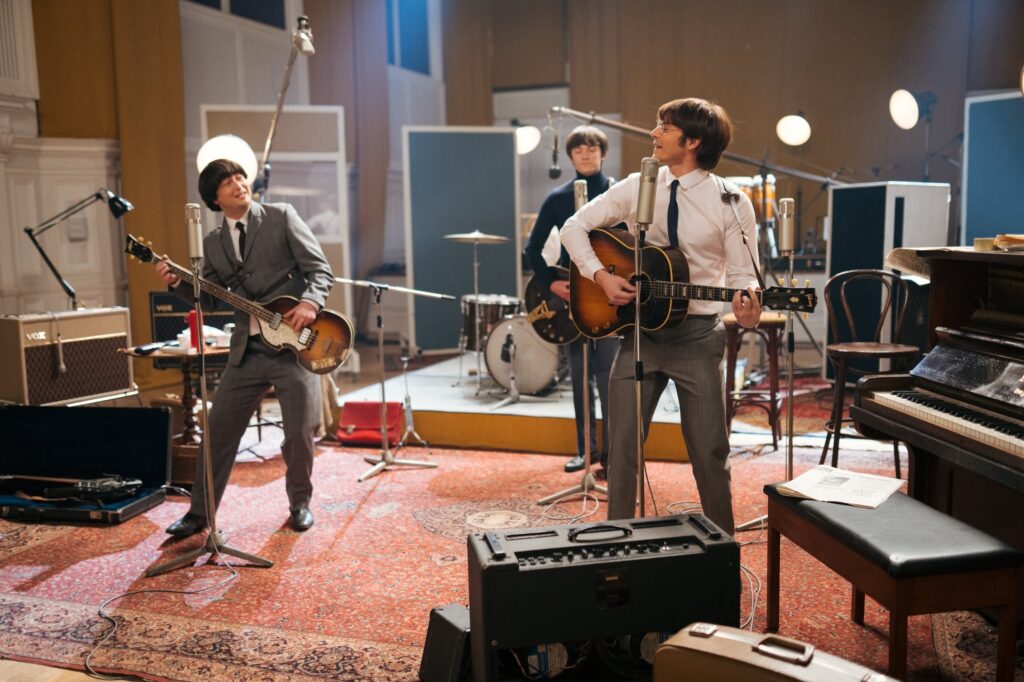
The Fab Four are in shockingly poor form, singing a dreary, out of tune song about their pet dog. That raised a chuckle. It reminded me of the more overtly comedic “My Lovely Horse”, Father Ted and Father Dougal’s 1996 ‘Eurosong’ (sic) entry in Father Ted. It can’t be a coincidence that “The Devil’s Chord” was screened before this year’s actual Eurovision Song Contest.
If The Beatles are bad, Cilla Black is worse, all the result of Maestro’s plan to ingest all music from the Universe, up to and including the ‘music of the spheres’(burp). The character can also weaponise sheet music, snapping notes around like a bull whip (cf Doctor Strange in The Multiverse of Magic, 2022). Beyond that, I couldn’t make head nor tail of their abilities.
I guess the desire for music is irrepressible in this world, even if the ability to make it is not. Of course, The Doctor themselves had an ear for music: the second Doctor played a recorder, the seventh thought Jazz was “sweet” and the twelfth cemented his image as ‘The Embarrassing Dad Doctor’ by making an entrance playing the electric guitar while standing on a tank.
“The Devil’s Chord” continued in the same heightened vein as “Space Babies”. Ultimately, they just exploded into a song and dance routine (much like the end of the 2016 Ghostbusters outing).
The story was painfully self aware, with a plethora of fourth wall breaking winks and nods to the audience. I guess the spirit of Christmas past – to wit 1965’s “The Daleks’ Masterplan” – lives on. Speaking of Christmas, Ruby now has the ability to manifest snow. Or perhaps, all these adventures are happening in a gigantic cosmic snow globe.
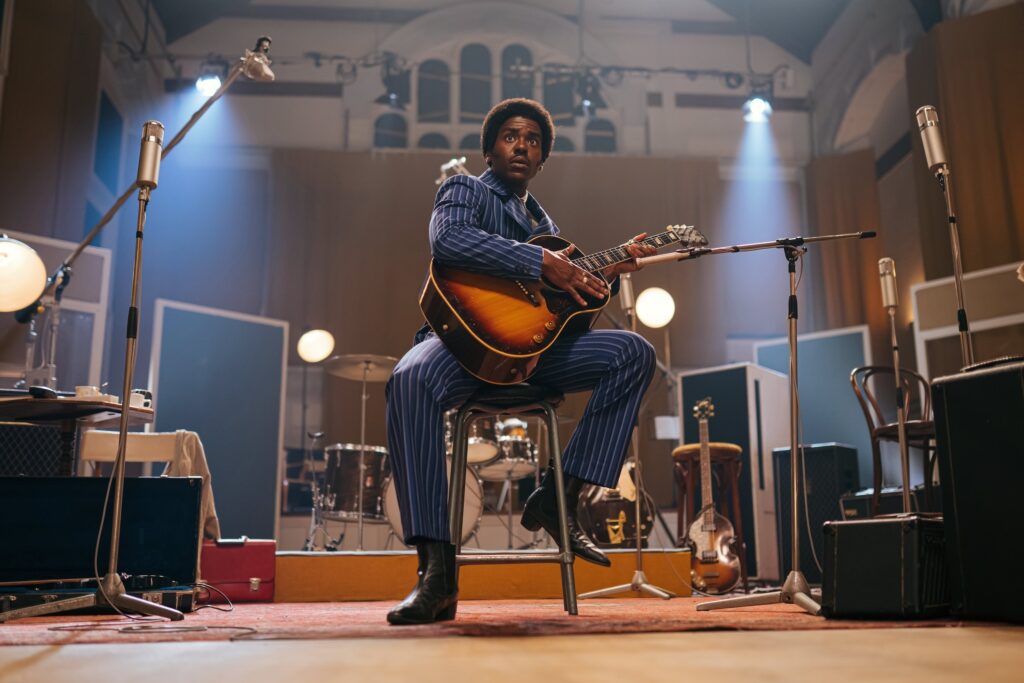
There are, however, limits to the show’s reflexivity. While RTD and fans have fretted over Davros as a negative representation of wheelchair users, it seems no-one has spared a second thought about the problems of having a black Doctor bursting into a song and dance routine at the drop of a hat.
The Doctor Who Appreciation Society’s Facebook group is currently being targeted with images of “Golliwogs” (I refuse to hide or sanitise the racism implicit in these characters by calling them “Gollies”). Golliwogs are dressed as minstrels and illustrate the way music and black identities play a part in negative stereotypes of black people and racist discourse.
Within this hateful perspective, the “musical negro” stands in contradistinction to civilised white society. Black people are patronisingly represented as fun-loving and carefree, with song and music in their hearts. I’m not saying that anyone on the show is consciously racist and I’m not denying music has had an important, positive place in the formation of Black Identities by black people themselves. At the same time the “let’s put on a show Doctor” all too easily plays into the negative image of the happy-go-lucky and racist figure of the “musical negro”.
Within racist discourse, black people’s affinity with music is explained by them possessing a “natural sense of rhythm”, that is rhythm that is akin to the rhythms of the natural world. The script for “The Devil’s Chord” inadvertently foregrounds this trope. Although Ruby is first to spot that no one is tapping their feet, or humming, or doing anything ‘naturally’ musical, The Doctor proves himself sensitive to the aeolian mode – the ‘natural’ minor scale and, according to The Doctor, the tunefulness of nature itself…
Within this ideology, “Timeless Child” also takes on an unintended meaning. Rather than working to the clock, the negro is seen as lazy or otherwise out of step with the necessary rhythms and temporality of the “Civilised” industrial West.
This temporal “Otherness: is exemplified in an expression such as “Africa time” – a term that I heard used by a DJ on BBC local radio only a few years ago. The DJ explained that the expression referred to Africans’ “relaxed” approach to deadlines of all kinds and went on to invite listeners to phone in with their own examples of Africa Time! I was even moved to ring the BBC to suggest the problem with this.
Maybe not. It could be argued that The Doctor stands for human creativity. He asserts that music is the highest form of human thought. Ok, but for me, the presence of a jukebox in the TARDIS is a constant reminder that dance and song are often seen as another manifestation of black people’s “primitive” child-like nature. Indeed, at times, the figure of “The Child” has been synonymous with “The Primitive”.
There was a real missed opportunity for “The Devil’s Chord” to at least acknowledge the way The Beatles and The Rolling Stones appropriated black music and vocal styles early in their careers. Or the racism still apparent in the music industry and the way structures of power have made music (and sport) a ‘special’ place in which people of colour are represented with the accompanying possibilities and limitations. I want Doctor Who to be fun but also I want it to confront Britain’s bullshit as Remembrance of the Daleks (1988) did, by explicit inclusion of a “no coloureds” sign on the door of a boarding house when The Doctor and Ace visited 1963.
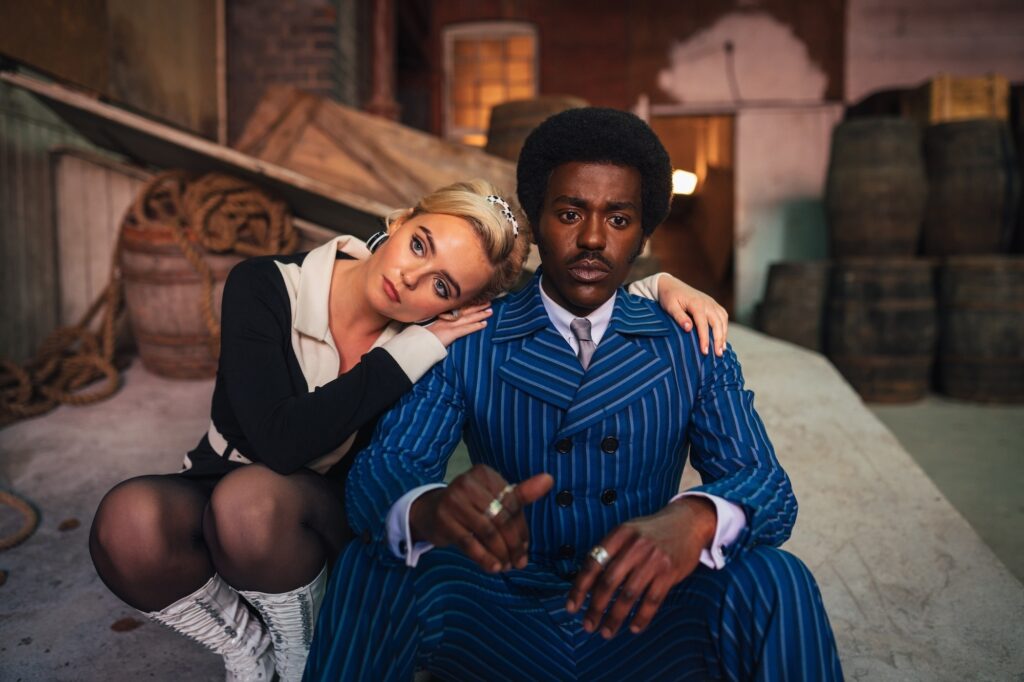
Now here’s the twist. All the social commentary mentioned above could be included in the forthcoming seasons, but it shouldn’t have to. To do so would place a burden of representation on Doctor Who, The Doctor and Gatwa himself. Just as Gatwa himself should not be compelled or expected to represent all members of some imaginarily homogeneous ‘Black community’, The Doctor should not have to continually raise and confront racist representations of Black people.
In the end, music has played an important role in Black identities, and has had an important place in British culture even if it has often been through a process of White appropriation. Black people should be seen singing and dancing on television without recalling the grotesque Black and White Minstrel Show.
Today, there is also a recognition, even if still mostly in academia, of the way individuals live at the intersection of different, sometimes contesting identities: age, ‘race’, gender, sexuality, nationality and so on. Davies has certainly ruffled a few feathers among the ‘too queer for me’ brigade. One critic refused to review “The Devil’s Chord” for fear a woke mob was waiting to pounce on any mistake the critic might make over personal pronouns.
For now, Doctor Who is still, unmistakably Doctor Who. Watching the opening stories was like watching no other current science fiction series. While Star Trek: Discoveryand Rebel Moon are tiresomely portentous, a word I learnt from Doctor Who (“The City of Death”, episode one), the current Doctor Who dances lightly in the face of disaster. It is serious when it needs to be and bonkers when it doesn’t. Mr Davies you are naughty, but I still like your work.
Tim Robbins
Doctor Who in all its many iterations is available on BBC iPlayer
Dear reader, a review is an opinion. Other opinions are available, including yours
• Radio Times: Doctor Who’s overnight ratings aren’t the full story – but they still matter
A freelance journalist and Doctor Who fanzine editor since 1978, Tim Robins has written on comics, films, books and TV programmes for a wide range of publications including Starburst, Interzone, Primetime and TV Guide.
His brief flirtation with comics includes ghost inking a 2000AD strip and co-writing a Doctor Who strip with Mike Collins. Since 1990 he worked at the University of Glamorgan where he was a Senior Lecturer in Cultural and Media Studies and the social sciences. Academically, he has published on the animation industry in Wales and approaches to social memory. He claims to be a card carrying member of the Politically Correct, a secret cadre bent on ruling the entire world and all human thought.
Categories: Doctor Who, Features, Other Worlds, Reviews, Science Fiction, Television
 In Review: Doctor Who – The Legend of Ruby Sunday/ The Empire of Death
In Review: Doctor Who – The Legend of Ruby Sunday/ The Empire of Death  In Review: Doctor Who – Rogue
In Review: Doctor Who – Rogue  In Review: Doctor Who – 73 Yards
In Review: Doctor Who – 73 Yards  In Review: Doctor Who – Boom
In Review: Doctor Who – Boom
Tim,
I usually enjoy your reviews but this —
“At one point The Doctor gets to reassure “Captain Poppy”, and the audience, that ‘nobody grows up wrong’. […] I wonder if he’d shared the same joie de vivre if it came to the likes of Liz Truss, or Donald Trump?”
— come on, you’re better than that. You may disagree with their politics, but don’t dehumanise people that way.
Also, re: musical interlude. I think you’re looking for problems that aren’t there. We had Neil Patrick Harris doing a musical number three episodes earlier, and that goblin band having a terrific sing-song in the Christmas episode, I think music’s just something RTD enjoys adding for its entertainment value, I don’t think he’s either consciously or unconsciously playing into some grand racist trope.
Speaking of – in this case – sexist tropes, did anyopne comment on the way the 13th Doctor always seemed to be the least intelligent person in the room? So much so that I eventually gave up watching, until Chris Chibnall’s tenure ended.
PS I have to say I like the fun that’s come back into the show, although more darkness would also be appreciated…
I think “Boom” gave us plenty of the requested darkness!